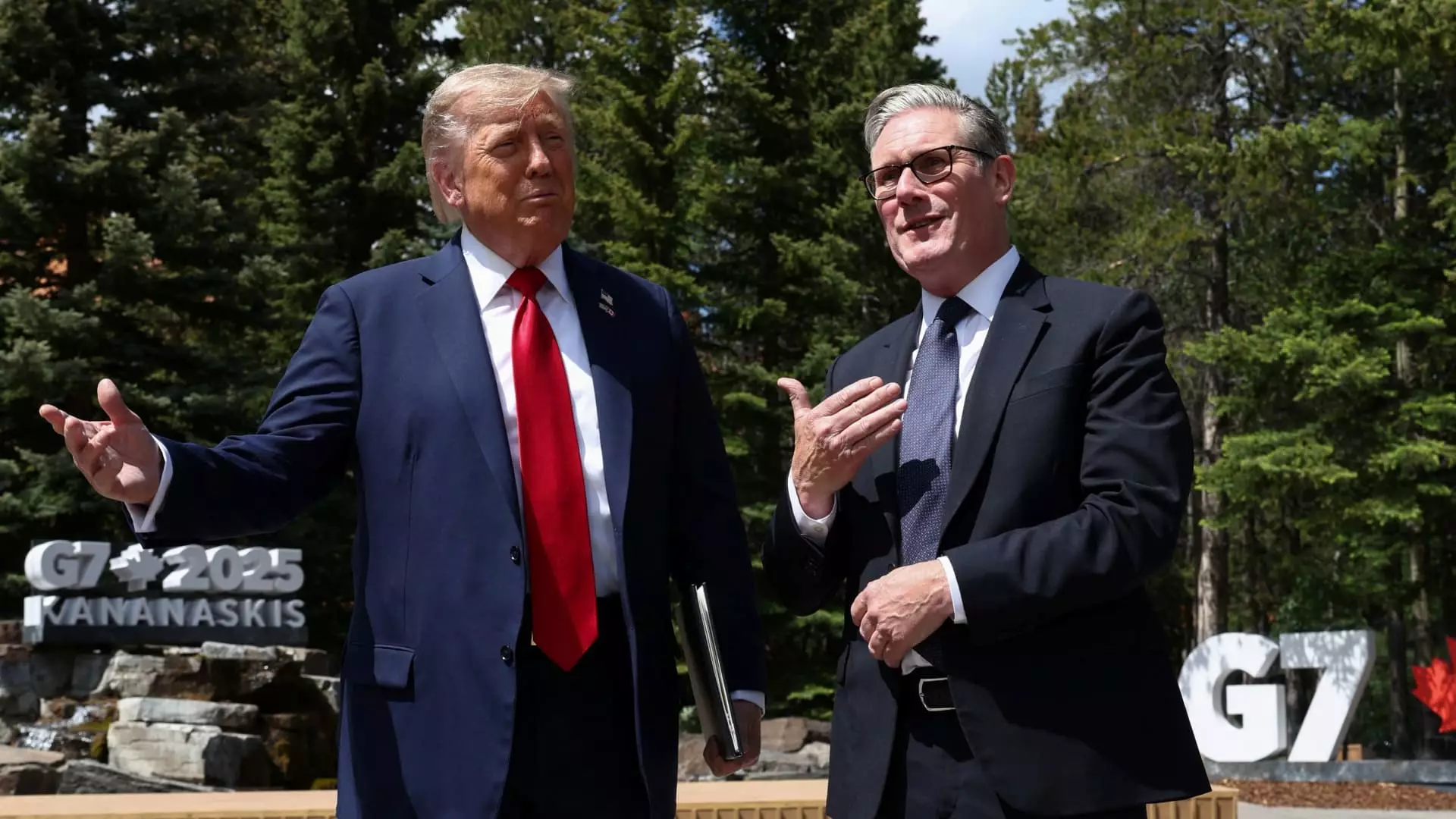The recent announcement of a tariff agreement between President Donald Trump and British Prime Minister Keir Starmer has been heralded as a significant diplomatic victory. While the waiver of tariffs on key sectors like aerospace and the establishment of a quota for British automobiles indicate a consolidation of transatlantic friendship, the underlying complexities of this agreement raise troubling questions. Is this relationship genuinely beneficial for both nations, or merely a façade designed to mask deeper economic insecurities?
From the outset, the agreement appears to breathe new life into strained U.S.-UK trade relations. With Britain emerging as the first country to negotiate reduced tariffs under the Trump administration, there’s an undeniable sense of achievement hanging in the air. Yet, it is essential to scrutinize the substance behind the celebratory language—after all, this is the same administration that has been embroiled in dubious economic strategies and erratic trade practices.
Tariffs: The Double-Edged Sword
While eliminating tariffs on the aerospace sector and establishing a tariff quota for automobiles are steps in the right direction, one must discern the nuances of these concessions. The 10% tariff on British cars significantly undercuts the standard 25% imposed on other nations, but does that genuinely reflect a booming partnership, or is it simply a pragmatic move to tide over an economic stalemate? The fact that steel and aluminum tariffs continue to loom large emphasizes the fragility of this agreement. The U.S. insistence that these provisions hinge on Britain’s demonstration of security on steel supply chains and production facilities feels less like a treaty and more like an indefinite probationary period.
What makes this treaty even more concerning is what is conspicuously absent. High-stakes industries like pharmaceuticals, which significantly impact public health and welfare, were ignored in the discussions. In a post-Brexit landscape where regulations and quality standards are paramount, leaving out pharmaceuticals signals a troubling lack of foresight. If Britain genuinely aims to establish itself as a global player, it must address the overarching implications that come with trade agreements.
A Political Theater
The jovial remarks from both leaders—describing the agreement as a “fantastic” step forward—do little to disguise the potential volatility that simmers beneath the surface. Trump’s blunder about the agreement being with the European Union instead of the United Kingdom serves as a telling metaphor for his administration’s overall approach to foreign policy: confused and careless. It raises the critical question—are these pacts grounded in mutual economic benefit, or are we witnessing a theatrical performance designed to garner short-lived applause?
Prime Minister Starmer’s exuberant declaration that this day marked “a very good day for both our countries” feels hollow when assessed within a broader context. There is an alarming discrepancy between the euphoric proclamations and the substantive challenges that remain unresolved. Any political leader worth their salt should beware of spinning narratives in their favor while ignoring the complexities that define international relations.
The Illusion of Security
The Trump administration’s assurance that “the UK is very well protected” because of amicable ties speaks volumes about the superficial understanding of international security. Trade deals should not merely rely on personal affinities between leaders; they must be fortified by strategic frameworks that promise mutual growth and stability. The reality is that the UK remains vulnerable to fluctuating U.S. policies, which can shift like sand under pressure from domestic pressures in the United States.
British Trade Secretary Jonathan Reynolds highlighted the reciprocal nature of the deal, emphasizing a modest import of U.S. beef while ensuring compliance with UK food safety standards. This aspect hints at the larger concern that trade agreements often come down to competition over consumer protection measures, balancing commerce against public safety. By prioritizing trade over security, are we truly advancing our nations’ best interests?
In this political landscape riddled with uncertainty, one thing is clear: the Trump-Starmer tariff agreement may project strength on the surface, but beneath the veneer of diplomacy lies a precarious alliance burdened by unresolved issues and potential fallout. The real test will come as both nations grapple with the ramifications of this agreement—only time will tell if it stands as a testament to true mutual benefit or crumbles under the weight of unforeseen challenges.

Leave a Reply